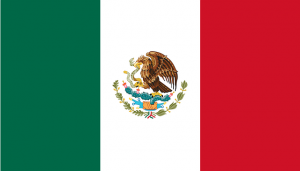Upon reading John Horvat’s book, Return to Order, I came to two conclusions. First of all, what the author states is perfectly in line with the social doctrine of the Catholic Church, which is universal, even though he clearly addresses an American public. Secondly, since my native land of Mexico is the southern neighbor of the United States and a major commercial partner, we Mexicans are influenced by the American economic outcomes and thus, we can learn from the book’s message.
The book works from the proper premise that the natural end of economics is to make it steadily achievable that individuals and families acquire the material goods required for a decent and virtuous life. All citizens and political authorities must work to make this happen. However, this does not always happen. There are those who are avaricious, unjust or are engaged in those frenzied dealings that Mr. Horvat calls the “frenetic intemperance” of our times. Proper economic activity is also impeded by extreme and isolated individualism as well as anti-personal and socialist statism.
Is Technology Ruining Your Life? Take A Quick Quiz To Find Out By Clicking Here.
What is missing from modern economy is that human element that comes from human dignity itself. God made man in His image and likeness. Knowing and understanding God is to know and understand man in his nature. We are God’s children and this lies at the deepest root of our being. We came from God and we go to God. God has created us as brothers and that is where our social nature came from; we develop ourselves in society and for society. In fact, we only discover our true value through the experience of communication with others. This applies not only to our social relationships but also our economic dealings as well.
Return to Order promotes the idea of restoring the links between the economic, political, and cultural aspects of life. Such a vision would do much to reject materialism, unbalanced consumerism and egocentric individualism that deprive modern man of meaningful life and purpose.
The book uses the metaphor of modern life being like a cruise ship on a never-ending cruise facing a coming storm. No one wants to call the party to an end and address the threats on the horizon. That is why it is so important to thoroughly understand the problem of production, real economic development and balanced consumerism that are in line with our human nature.
Return to Order does not just criticize modern economy and culture. It also enters into the question of what can be done to return to order. The author develops good personal strategies to follow and a course of action to face the storm that approaches. He calls upon us to pause and reflect upon our acts. We must engage in deep introspection and develop “organic” solutions to change the way we live. This especially involves the sacrifice of exercising leadership in order to help others. All can find ways, be it by how we dress, speak and lead, whereby we can truly be “representative figures” to those around us. Any return to order calls for a corresponding return to the practice of the cardinal virtues.
Finally, there is hope. “The kingdom of God is at hand. Repent, and believe in the gospel”  (Mark 1:15). We must live by the values of the kingdom of God, for as Saint Matthew says “Seek ye therefore first the kingdom of God, and His justice, and all these things shall be added unto you” (Mathew 6:33). This is the invitation extended by Return to Order.
(Mark 1:15). We must live by the values of the kingdom of God, for as Saint Matthew says “Seek ye therefore first the kingdom of God, and His justice, and all these things shall be added unto you” (Mathew 6:33). This is the invitation extended by Return to Order.



